If you’ve ever been in a car that smells like chlorine, you may have wondered why your car is emitting such a pungent odor and what can be done about it. While the underlying cause of this unpleasant smell could be anything from an air freshener gone awry to more serious issues, understanding the basics of vehicle odors can help you diagnose and solve the problem quickly. In this blog post, we’ll discuss what causes cars to smell like chlorine, examine potential solutions based on the source of the odor, and provide an easy guide on how to keep your car clean and fresh so it never goes wrong again.
How to Recognize an Ambient Odor in the Car?
The smell of your car can tell you a lot about its condition. It can reveal problems with air quality, leaks, and even the health of components. One of the most common odors to recognize in a car is an ambient odor, which could be caused by a variety of things such as smoke, mold, or exhaust fumes. [1]
Identifying an ambient odor in your car can be tricky, but there are a few clues that you can look for to help determine its source.
First, pay attention to any strange smells when you turn on the ignition. If it smells like something burning or musty, then the smell may be coming from the engine compartment. Look for smoke coming from the hood and listen for any strange noises.
Second, if you notice any strong odors while driving, such as exhaust fumes or gasoline, it is likely coming from the exhaust system. Inspect the brakes and tires for signs of excessive heat or wear. Also, look for places where moisture may have built up due to a leak in the vehicle’s seals.
Third, another common source of ambient odors is mold or mildew, which can be caused by a variety of things like damp carpets or upholstery. This type of smell should not be ignored as it can cause respiratory irritation and other health problems if left unchecked.
By taking these simple steps, you can be sure that your car is pleasant to drive in without unpleasant odors. Identifying an ambient odor in your car is not always easy, but with a little patience and attention to detail, you should be able to identify the source of the smell. If it persists or worsens, don’t hesitate to take your car in for a professional inspection. [2]
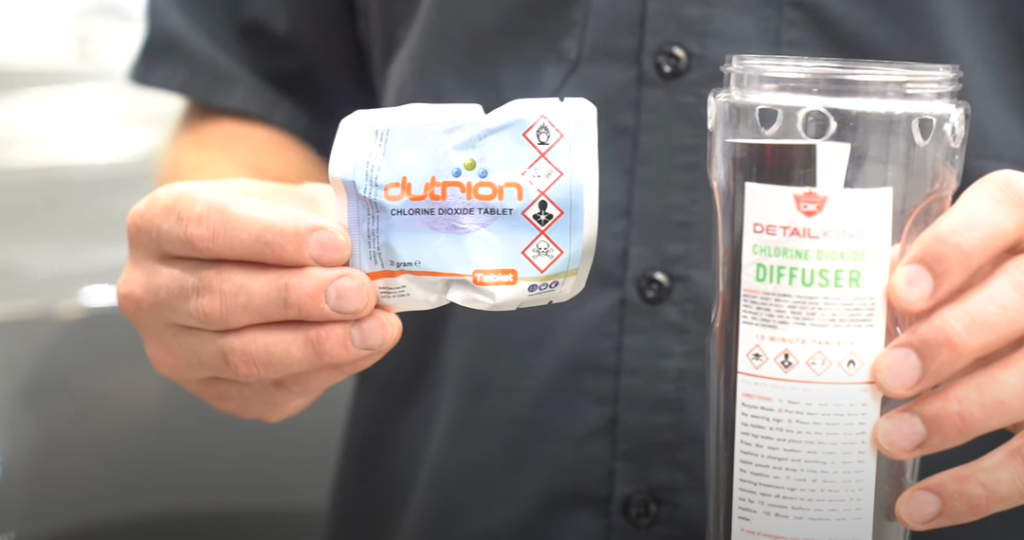
What Smells Can Be Harmful to Machine Performance?
Car odors can be both pleasant and unpleasant, but some can be harmful to your car’s performance. The air quality inside a vehicle is often worse than the air outside, so it’s important to know which smells can damage your engine and other parts of your car. [3]
Some common vehicle odors that are bad for machine performance include antifreeze, gasoline, exhaust fumes, oil and burning rubber. These smells can signal an issue with the car’s engine or other parts of the vehicle. Ignoring such smells can lead to engine failure and costly repairs in the future.
The best way to identify a potentially harmful smell is to observe your car’s performance. If you experience a drop in performance or other irregularities while driving, it’s best to have your car looked at by a qualified mechanic.
It is also important to regularly check the oil and coolant levels of your vehicle to make sure that they are not leaking. Doing so can help identify any potential problems before they become serious issues.
If you ever detect a smell that you can’t identify, it is crucial to open the windows and let fresh air in. If the odor persists, have your car checked by a professional as soon as possible. Taking preventative measures will help ensure that your car stays in top condition for many years to come.
Remember: good car maintenance starts with being able to identify any potential problems before they become serious. Pay attention to any strange smells in your car and investigate them as soon as possible!
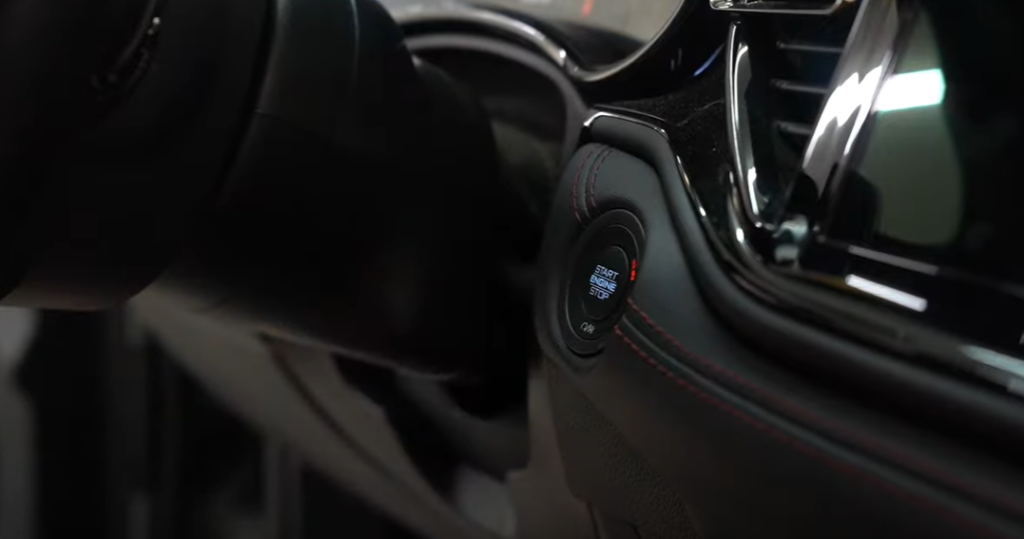
How to Get Rid of Unnecessary Odors in the Car?
Getting rid of odors in the car can be a tricky task, but it’s not impossible. With some simple steps and techniques, you can make sure your car always smells fresh and inviting. Here are a few tips to help get rid of those stubborn car odors:
- Open the windows and air out the vehicle for at least 15 minutes. This allows fresh air to enter and circulate, washing away any unpleasant odors present. [4]
- Vacuum regularly. Taking the time to vacuum your car on a regular basis helps remove dust, dirt, and other particles that may be adding to odor buildup in the car.
- Use baking soda or charcoal to absorb odors. Sprinkling baking soda or placing charcoal around the car can help absorb unpleasant odors. Make sure to change these out every few weeks for the most effective odor absorption.
- Invest in an air freshener. Air fresheners come in a wide variety of scents and styles, so you’re sure to find one that suits your taste. Hang one from the rearview mirror or invest in a car air freshener that plugs into the 12V outlet and automatically releases scent.
- Clean up spills immediately. Spills are one of the most common causes of unpleasant odors in cars, so it’s important to clean them up as soon as possible.
- Avoid smoking in the car. If someone does smoke in your car, be sure to roll down the windows and air out the vehicle afterwards.
- Have your car professionally detailed. Professional detailing can help remove any odors caused by smoke, food spills, pet accidents, mold, or mildew.
Follow these simple steps and techniques and easily get rid of annoying odors in your car and keep it smelling fresh and inviting. With a little bit of effort, you can make sure your car is always looking and smelling its best! [5]
What Steps Should I Take If Detecting Machine Smells of Chlorine?
If you detect a chlorine smell coming from your car, there are steps you can take to identify the source of the odor and address it.
First, locate the origin of the smell. Check around all upholstery and other visible areas for stains or damp spots which could be giving off a chlorine odor. If you are able to identify any damp material, use a shop vacuum to remove the water or other material and dispose of it properly.
Once any remaining moisture is removed, use an air purification system to help clear the air in your car of chlorine smells. You can also run an ozone treatment which will help neutralize odors by removing pollutants from the air. There are many options available for purchase that can be used in your car.
Keep up with regular maintenance on your car to avoid any issues with odors in the future. Change out cabin air filters as recommended by your car’s manufacturer, and vacuum or steam clean the interior of your car regularly. This will help keep pollutants from accumulating in the air and causing unpleasant smells that can be difficult to remove. [6]
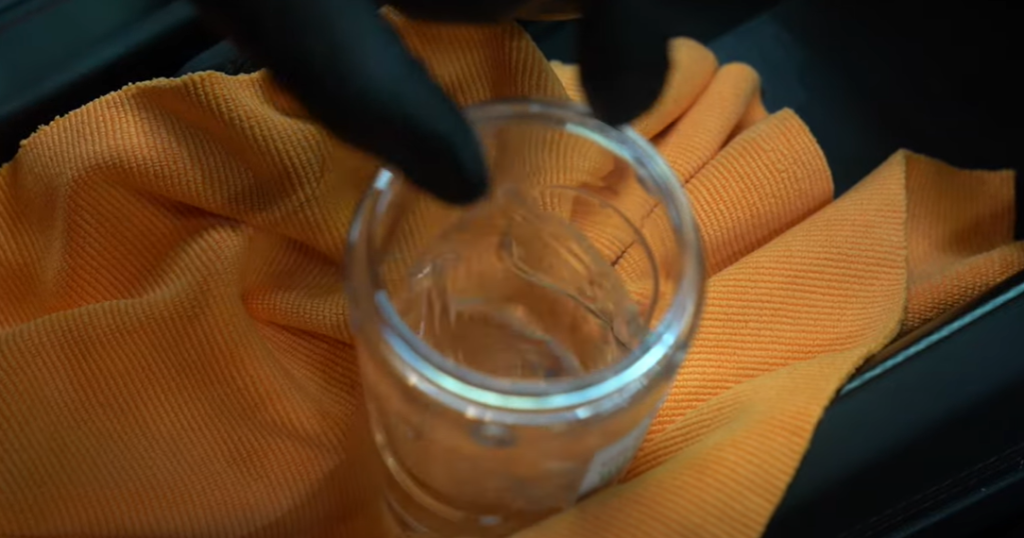
How to Care for My Car?
To keep your car in top shape, it’s important to follow a few easy steps for proper car care. Regular maintenance and upkeep will ensure that your car is running smoothly and reliably. Here are some tips to help you get the most out of your car:
- Check Your Fluids – Make sure to routinely check all of your vehicle’s fluids and top them off as needed. This includes motor oil, coolant, brake fluid, power steering fluid, windshield washer fluid and transmission fluid. [7]
- Tune It Up – Regular tune ups are important for your car’s performance since they allow mechanics to detect any problems that might have gone unnoticed. During a tune up the mechanic will check the spark plugs, oil filter, air filter, belts and hoses.
- Change Your Oil – Changing your oil is essential for keeping the engine running smoothly. The frequency at which you should change your car’s oil varies depending on the make and model of your vehicle so be sure to consult with a mechanic or look in your owner’s manual.
- Tire Care – Proper tire care is important to extend the life of your tires and ensure a safe ride. Check the air pressure in your tires regularly to make sure they are inflated correctly. You should also rotate your tires every 5,000 miles or so.
- Clean Regularly – Keeping your car clean is important for both aesthetic appeal and longevity. Make sure to remove dirt and debris from your car’s body and interior surfaces as soon as possible. Washing your car on a regular basis will help prevent any damage to the paint or interior.
- Keep Your Car Covered – Park your car in a garage if you can since it will be protected from snow, rain, hail, and debris that can cause damage over time. If you don’t have access to a garage, try using a car cover or tarp when you park your car outside.
Here are some tips to prevent odors from developing:
- Vacuum the interior regularly – this will help remove dirt and dust that can build up inside your car.
- Clean spills and stains immediately – they can create bacteria which contributes to bad odor.
- Don’t let fast food wrappers and other garbage pile up – this can encourage odor-causing bacteria to grow.
- Clean out your car’s air vents periodically – dust and dirt that gets trapped in the vents can cause musty odors.
- Hang an air freshener or deodorizer from your rearview mirror – this will help keep your car smelling fresh.
If odors still persist, there are other options to consider such as professional steam cleaning or ozone treatments. With the right care, your car will be odor-free and looking great in no time! [8]
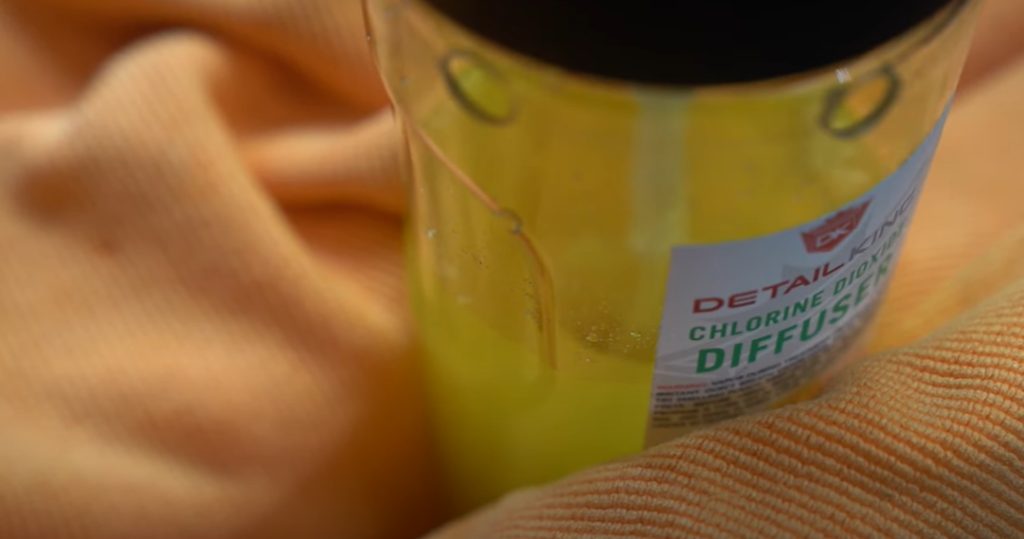
When to Get Help from a Car Mechanic?
It’s crucial that you know the basics of car maintenance and when it’s time to call an expert. Here are some common problems that require a professional mechanic:
- If your brakes or suspension system feel different.
- If you can smell something burning under the hood.
- If there is smoke coming from the engine.
- If your car is leaking fluids or making strange noises.
- If you’re having trouble with your car’s electrical system.
Don’t take chances when it comes to the safety of yourself and others; if you can’t fix the problem on your own, make sure you get professional help. A good mechanic can identify the issue quickly and get you back on the road in no time.
Finding the right car mechanic for your needs doesn’t have to be a challenge. Taking the time to do some research and find someone you can trust will make all the difference when it comes to getting quality service at an affordable price. [9]
What Care Products Should be in the Car?
In order to ensure your car is running smoothly, you need to have the right care products in it. It’s essential to make sure you’re using the correct items to keep your vehicle maintained and safe on the road. Here are some of the most important products that should be included in any car:
Engine Oil
Engine oil is vital in order to keep your engine running smoothly and efficiently. It helps reduce the wear and tear on all the moving parts, keeping them lubricated and cool. Make sure to check what type of oil you should be using for your specific car and always use a quality brand.
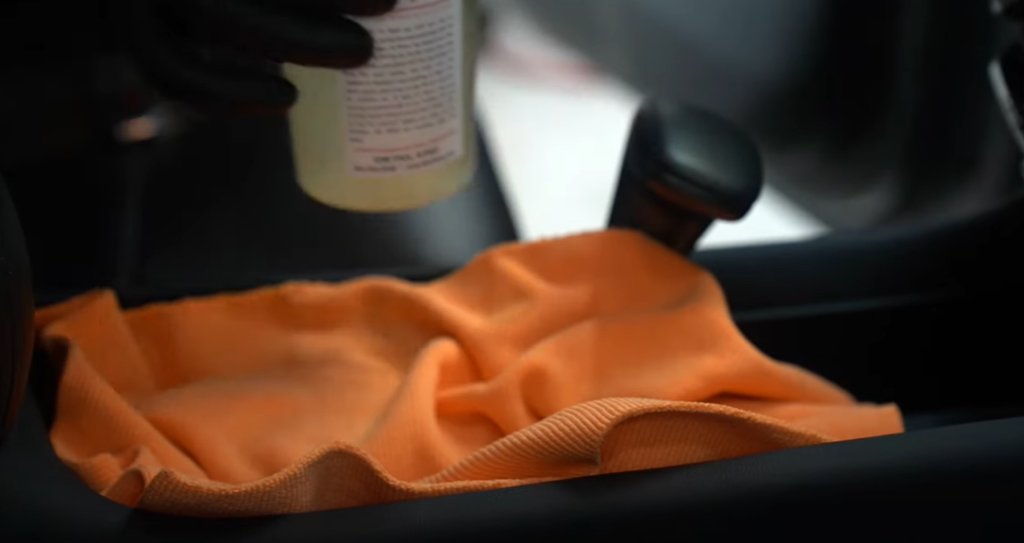
Coolant
Coolant helps prevent your engine from overheating and is essential for keeping your car running smoothly in the warm weather. Make sure to check your coolant levels regularly and top them up when necessary.
Windshield Wipers
Windshield wipers are a must-have for any car, as they help provide clear visibility in harsh weather conditions like rain or snow. It’s important to make sure your windshield wipers are in good condition and can effectively wipe away water or debris from the window.
Headlights
Having well-functioning headlights is essential for night driving, as they provide illumination on dark roads. Check your headlights regularly to ensure they’re functioning properly and replace them if necessary.
Brake Fluid
It is an important component in a car, as it helps keep your brakes functioning correctly. Make sure to check the brake fluid levels regularly and top them up when necessary.
Car Cleaning Products
Keeping your car clean is essential for its longevity and good looks. You should have a few basic cleaning products on hand, such as car shampoo, a microfiber cloth, window cleaner and tire dressing. This way you can keep your vehicle looking its best all the time.
Battery Charger
A battery charger is crucial for keeping your battery in tip-top condition. It helps maintain the charge level so it’s always ready to go when you need it. Make sure to check that your charger is in good working order and properly connected to the battery.
By ensuring you have all these essential car care products in your vehicle, you can keep it running smoothly for many years to come. Regularly checking and maintaining your car will also help ensure it stays safe on the road. [10]
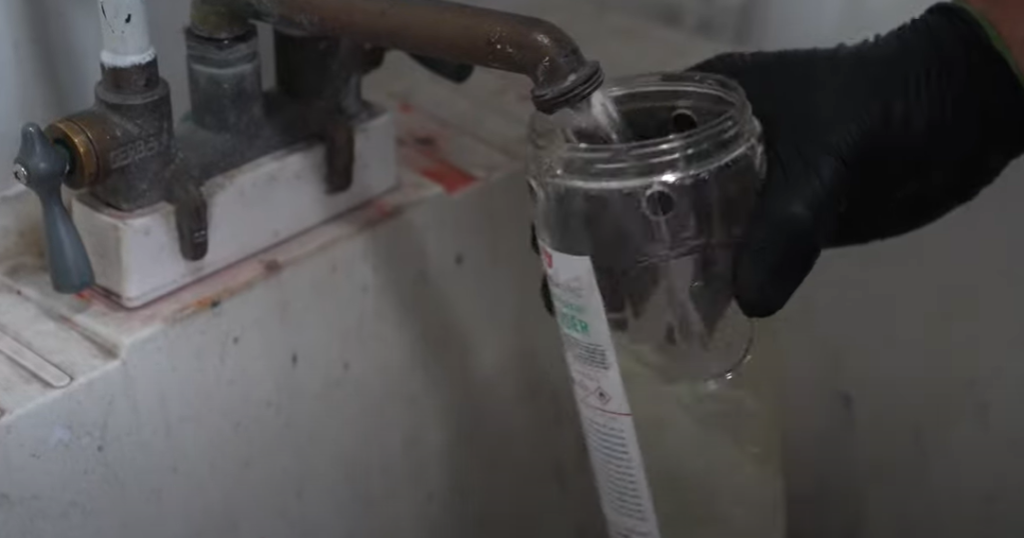
How Often Should I Wash My Car?
Knowing how often to wash your car is essential for keeping it looking its best. Generally speaking, it’s recommended that you wash and wax your car at least once a month to remove dirt, salt, dust, and other debris from the surface of your car. Additionally, if you live in an area with harsh winters or near a beach, where sand and salt can be a problem, you may need to wash your car more often.
If you plan on washing your car yourself, make sure that you use the right products and tools. Using an automotive detergent with a pH-balanced formula will help prevent paint damage and avoid leaving streaks or swirls on the surface. Additionally, consider using microfiber towels instead of traditional sponges, as these are less likely to scratch or damage the paint.
For those who don’t have the time or resources to wash their car on a regular basis, there are services available that offer professional car washing and detailing. These services can provide a deeper clean than what you could do yourself at home, and they often include waxing, polishing, and other treatments that will keep your car looking great.
No matter what method you choose for keeping your car clean, regular maintenance is important for preserving the paint job and ensuring that your car looks its best. With a few simple steps, you can keep your car looking as good as new! [11]
Does Car Odor Affect Driving Safety?
Cars can be a source of many smells – from the new car smell to exhaust fumes and odors released from the air vents. But does the smell of your car affect your driving safety?
Certain odors can cause distractions for drivers, making them less aware of their surroundings and more prone to accidents. The most common culprits are strong food odors, smoke, and other pollutants.
Smoke from cigarettes can be especially distracting as it has been associated with an increased risk of car crashes. So if you’re a smoker or have passengers that smoke in your car, it’s important to open the windows to keep the air circulating properly.
Exhaust fumes pose another risk for car owners. As cars age, they can release pollutants that can be toxic to your health and cause drowsiness when inhaled. Make sure you keep an eye on the condition of your exhaust system and check for any leaks or blockages regularly.
Strong odors such as perfumes and air fresheners can also have an effect on driving safety. These odors can cause drivers to become easily distracted and lose focus while on the road. Try using natural air fresheners such as essential oils or scented candles instead of aerosol sprays and car perfumes.
By taking small steps to ensure proper ventilation in your car, you can help reduce the risk of distracted driving due to odors. [12]
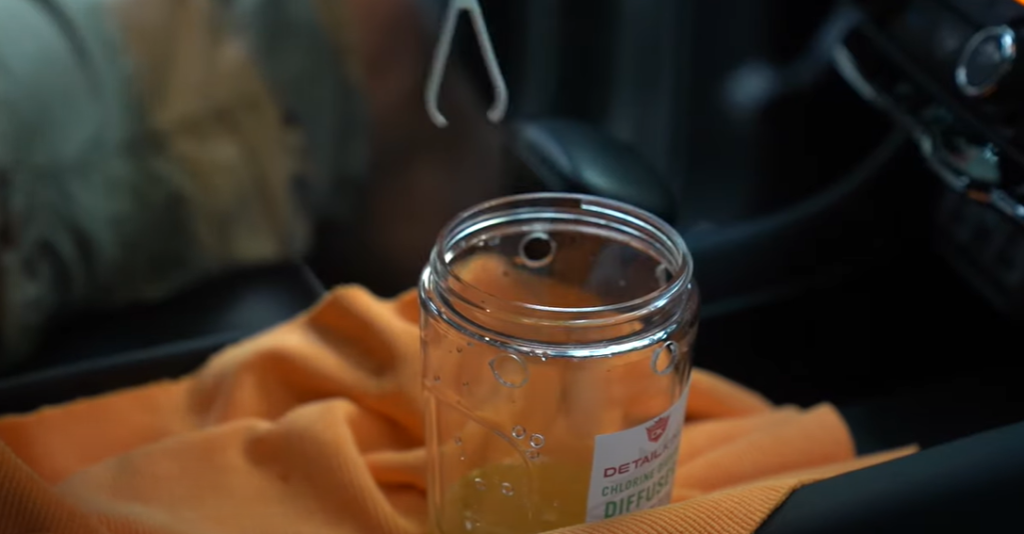
FAQs
Why does my car randomly smell like chlorine?
The strange smell of chlorine could be coming from a number of sources. It is possible that your air conditioning system has developed a leak and the coolant contains chlorine. If this is the case, you should take it to a technician as soon as possible for further inspection. Additionally, there may be an issue with the water pump, which circulates coolant to keep the engine from overheating. It could also be an issue with the thermostat, which regulates the car’s temperature. Also, it could possibly be caused by a leaking radiator hose or a clogged exhaust pipe. Regardless of the source, if you smell chlorine while driving, it is important to have your car inspected immediately for safety and to prevent further damage.
Why do I smell a chemical smell in my car?
There are several possibilities that may be the cause.
The first one is a coolant leak. Coolants contain ethylene glycol and other chemicals, and if they leak, you will often get a sweet smell from the engine compartment. If this is the case, it is important to address the leak as soon as possible.
Another possibility could be that there is a fuel leak. Fuel contains several different chemicals and you may notice a strong smell when this happens. If this is the cause, make sure to get your car into a mechanic straight away so they can diagnose and repair any issues.
What gas leak smells like chlorine?
Gas leaks that smell like chlorine may indicate a natural gas leak in your car. Natural gas is composed of methane and other hydrocarbons, but it also contains traces of chlorine and sulfur compounds. When you detect the presence of these chemicals, it is important to take immediate action as they can be extremely dangerous. Before proceeding with any emergency response activities, make sure to safely evacuate any people or animals from the area. If possible, turn off the source of gas and ventilate the area. Contact your local fire department or a professional for assistance in assessing and addressing the issue. Never attempt to investigate a potential gas leak with an open flame!
Why does my car smell weird all of a sudden?
One of the most common problems many car owners face is strange and unpleasant odors coming from their vehicles. These smells can be caused by a variety of things, such as a blocked air filter, an antifreeze leak, or mildew buildup due to moisture in your vehicle’s cabin. To identify the source of the smell, you should first take a close look at your car’s interior and exterior. Check for any visible signs of corrosion, leaking fluids, or mold growth. Also, pay attention to the smell itself. If it smells like something burning or has a sweet scent, then it could be an indication of a more serious mechanical issue. If you are unsure about what is causing the smell in your vehicle, take it to a mechanic for an inspection and diagnosis.
Useful Video: Kill Car Odors in 30 Minutes – Chlorine Dioxide Diffuser | Detail King
Summing Up
Taking care of your car is essential for it to perform efficiently. If you often feel that your car has a chlorine smell, there are methods to help you get rid of it. The most important thing is to actively monitor and maintain the condition of your car in order to ensure constant freshness and efficient driving performance. After all, nothing ruins a road trip more than an unpleasant odor coming from your vehicle and having a malfunctioning car can not only ruin the vacation but also jeopardize your safety. So, remember to take good care of your car, give it regular maintenance checks, and have the right materials so you can easily get rid of any bad odors in the future!
References:
- https://www.businesstoday.in/magazine/travel/story/auto-bild-tips-identify-car-trouble-with-different-odour-38642-2013-02-23
- https://www.thirdcoastautos.com/blog/why-does-my-car-smell-weird/
- https://www.fiix.io/car-advice/articles/4-common-smells-that-signal-trouble-for-your-car
- https://blog.nationwide.com/vehicle/vehicle-maintenance/get-rid-of-car-smells/
- https://www.aa.co.nz/cars/motoring-blog/how-to-remove-unwanted-smells-from-your-car/
- https://carbasicsdaily.com/why-does-my-car-smell-like-chlorine/
- https://www.bankrate.com/loans/auto-loans/top-car-care-tips/
- https://www.artofmanliness.com/skills/manly-know-how/heading-out-on-your-own-day-21-maintaining-your-car/
- https://getjerry.com/advice/when-to-take-your-car-to-a-mechanic
- https://www.holtsauto.com/simoniz/news/essential-items-keep-car/
- https://www.washdoctors.co.uk/post/how-often-should-you-wash-your-car
- https://www.auto123.com/en/news/can-car-fresheners-make-driving-safer/46357/





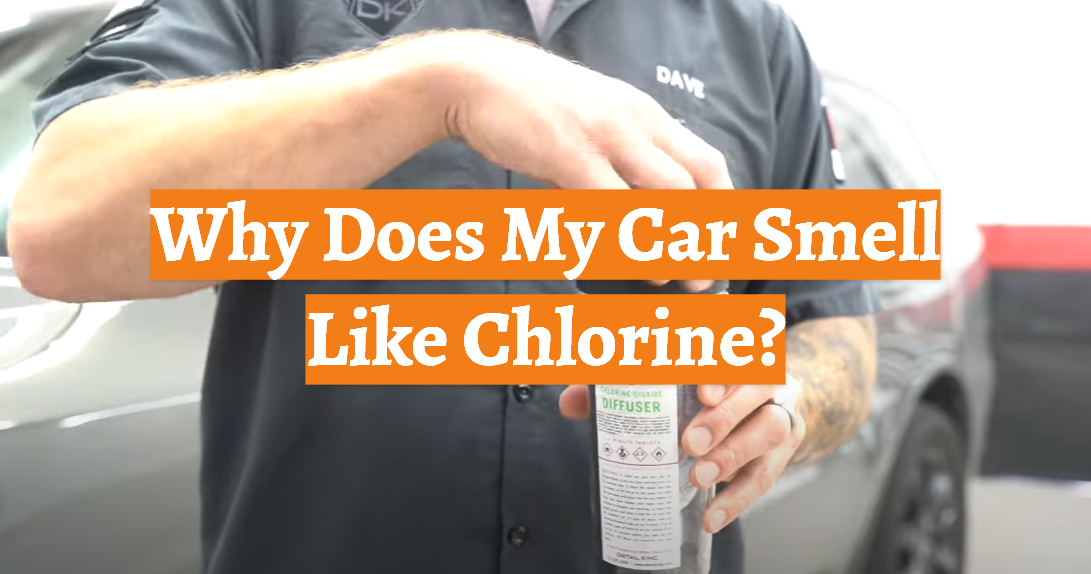
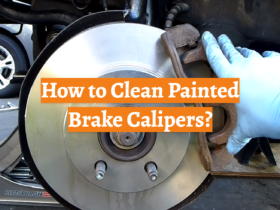
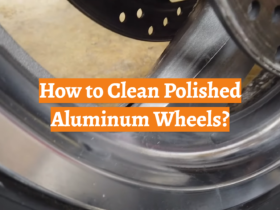
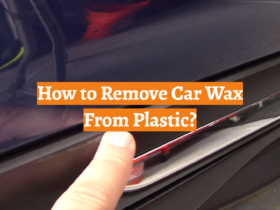
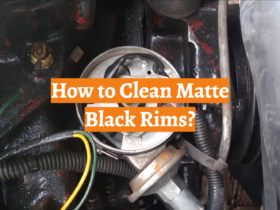
Leave a Review